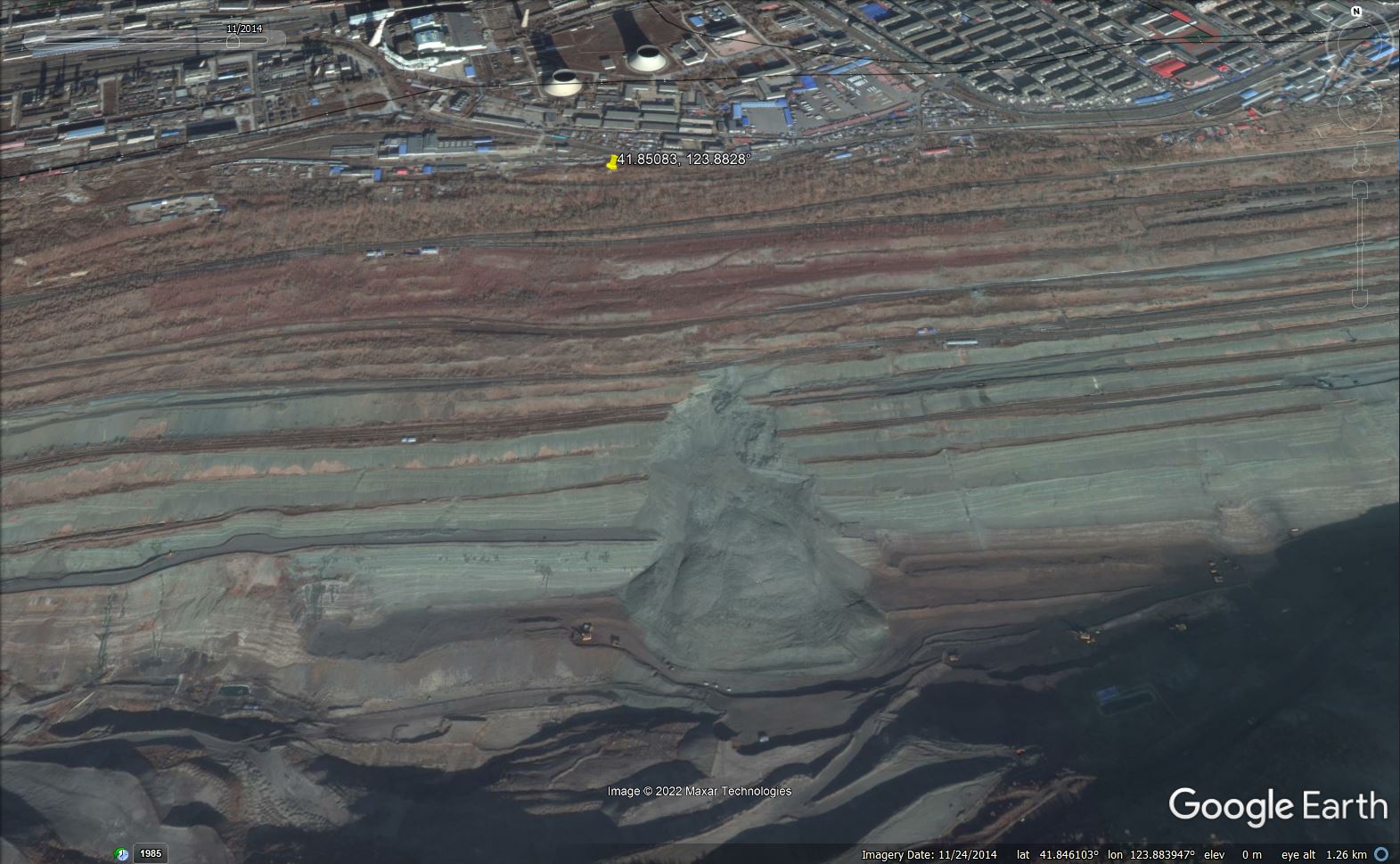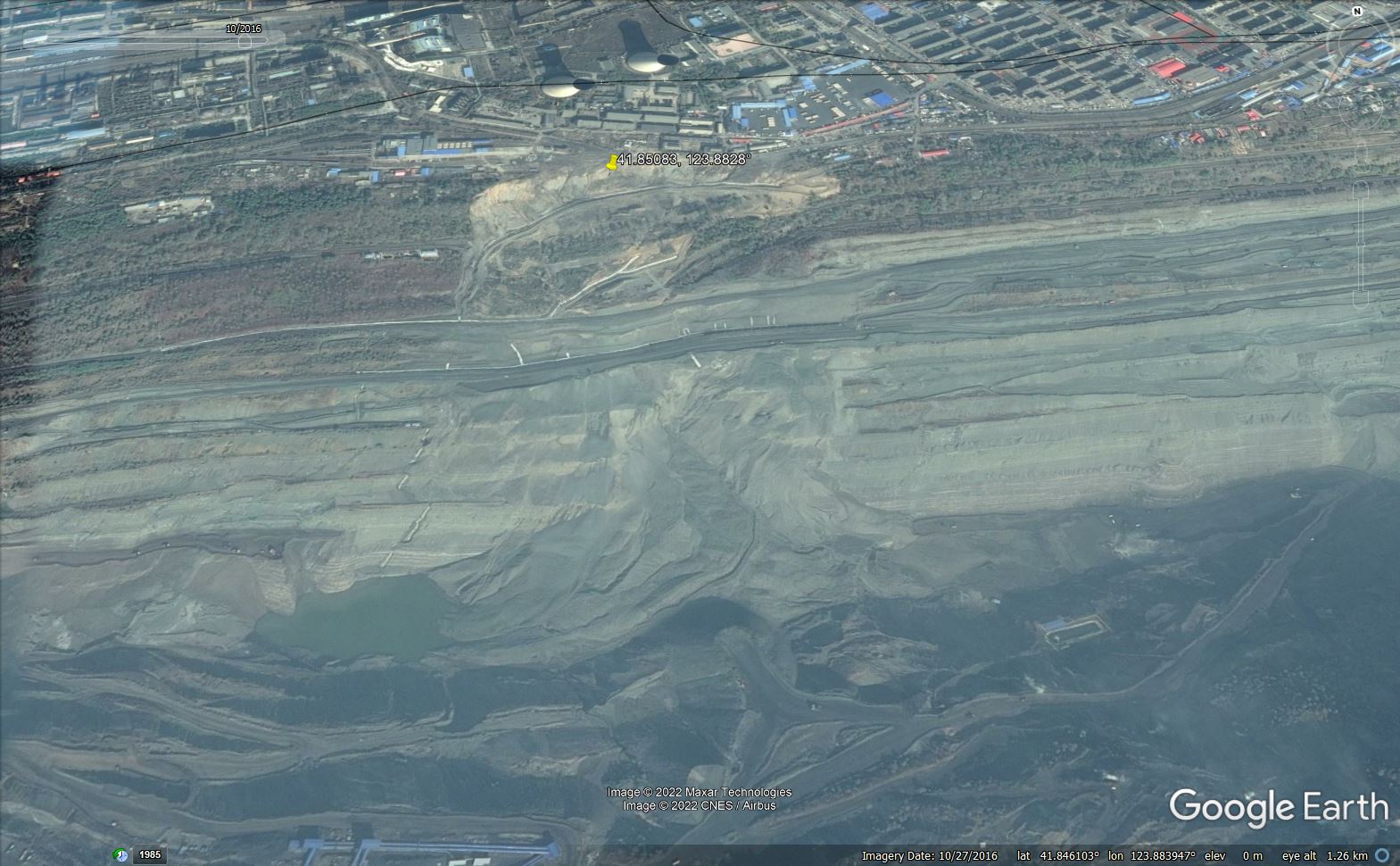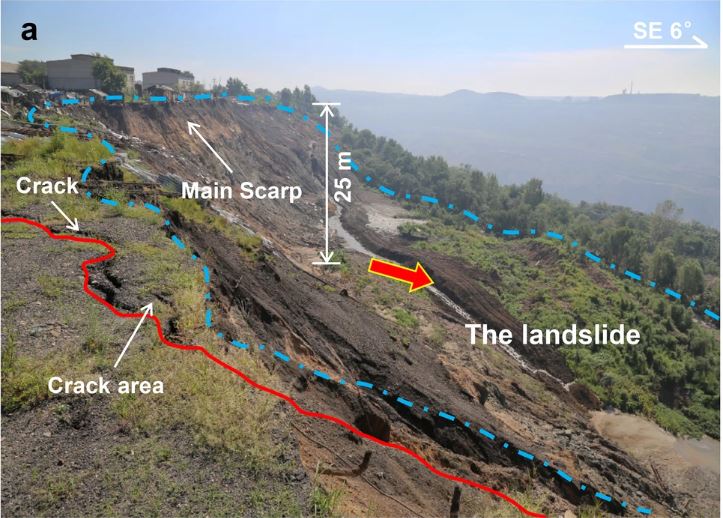4 August 2022
The 26 July 2016 landslide at Fushun west pit in China
Posted by Dave Petley
The 26 July 2016 landslide at Fushun west pit in China
On 26 July 2016 a large landslide occurred in a highwall at a large coal mine in Fushun, China. The landslide, which is described in a paper just published in Landslides (Sun et al. 2022), caused extensive damage.
The impact of the landslide is nicely captured on Google Earth. The site is at 41.8508, 123.8828 – this is an image from November 2014:-

Google Earth image of the site of the 2016 landslide at Fushun in China.
.
Whilst this is an image taken in October 2016, after the landslide:-

Google Earth image of the aftermath of the 2016 landslide at Fushun in China.
.
This was the largest in a series of landslides that occurred in this coal mine – Sun et al. (2022) describes over 100 landslides over the life of the mine, which seems like a surprisingly high total, especially given the proximity of infrastructure to the edge of the workings. The authors note that these landslides caused “severe damage to buildings, underground pipelines, roads, and railways”.
The 26 July 2016 landslide was on a different scale however. The landslide was 350 m long and 500 m wide, with a volume of 3.1 million cubic metres. It destroyed 40 houses as well causing damage to roads, railway lines, equipment, and buildings.
The landslide itself was a rotational failure in the upper part of the highwall, with a fragmented debris trail on the lower slopes. The image below, from Sun et al. (2022), shows the aftermath of the rotational failure:-

The aftermath of the major landslide at Fushun City in July 2016. Image from Sun et al. (2022).
.
It is interesting to note that the Google Earth imagery shows a substantial landslide on the lower slopes prior to the this very large failure. Sun et al. (2022) do not appear to consider this to have been a factor in the main landslide event, which is interesting. The final trigger for the landslide was heavy rainfall.
The July 2016 Fushun landslide is a very good example of the ways in which long wall mining can trigger destructive instability. In a site with houses located so close to the mining operations, there is a particular responsibility to manage the slopes. The paper rather carefully reports multiple destructive landslide events in this mine; I hope that lessons have been learnt since this major failure.
.
Reference
Sun, S.W., Liu, L., Hu, J.B. et al. 2022. Failure characteristics and mechanism of a rain-triggered landslide in the northern longwall of Fushun west open pit, China. Landslides (2022). https://doi.org/10.1007/s10346-022-01926-3


 Dave Petley is the Vice-Chancellor of the University of Hull in the United Kingdom. His blog provides commentary and analysis of landslide events occurring worldwide, including the landslides themselves, latest research, and conferences and meetings.
Dave Petley is the Vice-Chancellor of the University of Hull in the United Kingdom. His blog provides commentary and analysis of landslide events occurring worldwide, including the landslides themselves, latest research, and conferences and meetings.